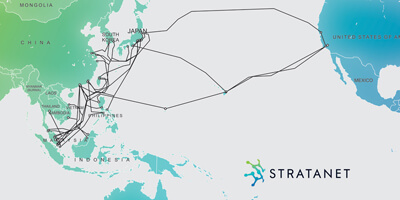The term ‘digital’ has changed everything the moment it emerged and has become somehow a label. Coupled with different other factors, the world has found itself amid a whole new era built on digital transformation, digital currencies and digital economies. The change that occurred had a significant impact on consumers’ behavior, business operations, government systems, and of course, finance. This is when the concept of a digital tax was born.
Features
Ericsson executive says it’s critical to address consumer 5G requirements
5G is expected to complement 4G technologies to improve standard of living for consumers and society as a whole, and open new revenue opportunities for enterprises across a wide spectrum of industries. Early commercial deployments are expected in 2019, and widespread deployment will still take a number of years – 5G is designed to deliver incredible data speeds, provide large capacity, low latency and energy efficiency to support innovation and services across industries.
Adopting a new approach for a productive cloud migration
In light of new digital ecosystems, lowering costs and building a modern IT environment have become an objective that companies seek to achieve in order to develop their operations. One of the elements leading to achieve this is migrating data to the public cloud. However, for some, this type of migration can be accompanied by technological, operational, financial and security challenges. According to McKinsey, the best way though is progressively adopting hybrid-cloud solutions.
StrataNet owned network covers Asia to USA
For content providers and mobile operators alike, the growth of data consumption has grown at a torrid pace. Northern Asia has among the highest data use globally with the developing SE Asian nations catching up each year. In general, the demand for capacity is being driven by the introduction of new data services along with an insatiable appetite for video and content heavy applications with all of these being lapped up by consumers and enterprises across Asia, SE Asia’s rapidly growing middle class.
Will Africa catch up after all?
What is 5G? The answer has become pretty simple now. It is a technology that will offer greatly increased bandwidth, dramatically faster download speeds and low latency. 5G networks will enable a long-term digital transformation and contribute to the emergence of smart societies around the world, in addition to setting the foundation for advanced technologies based on the Internet of Things (IoT). Now, as 5G deployment appears on the horizon, Africa, just like any other region in the world, has realized the importance of joining this technological race to leverage its benefits and empower citizens to boost innovation.
How algorithms are controlling our lives
The word “algorithm” has become very recurrent and polemic lately in the world of digital technologies and trends. It symbolizes the dangers and consequences of an automated world conditioned by commercial logic. Before judging negatively or positively its impact and role in Google’s searching process, Facebook’s news feeds and recommendations on Amazon, it is important to define an algorithm first.
The telecommunications industry revolutionizing Africa
The telecommunications industry has been one important pillar in Africa that is lifting the continent up and putting it in the spotlight again. Telecommunication technologies aim at insuring communication in the first place, but are also meant to transform lives not only in developed countries but in emerging and developing nations.
Is blockchain here to stay?
Blockchain is set to revolutionize all industries, from finance, banking and insurance to healthcare, media and logistics in a way that will change all processes and create new models that will have a greater impact on consumers and markets.
Data protection in Africa under the microscope
The world witnessed in the past years unprecedented technological advancements and the emergence of new trends thanks to one thing: data. It is not surprising that the latter was an essential enabler of digitalization because it is the basis of almost every technological innovation. Given the importance of data, governments and international entities have established relevant frameworks, laws and regulations in order to avoid data breaches and sanction perpetrators in case they took place. However, in Africa, a technologically emerging continent, data protection hasn’t reached quite the right level.
Is digital transformation happening in Africa?
Africa is no longer this abandoned continent. Even though it has long been considered as under-developed it has started to emerge, notably in terms of telecommunications. Whether from the point of view of mobile subscriptions that account for around one billion, 3G and 4G deployment, or even the influx of low cost smartphone, the telecoms market scene in Africa is positively changing. In spite of infrastructure challenges, the continent was finally able to guarantee for his residents access to the latest mobile innovations, notably mobile money services in which the continent is leader.














